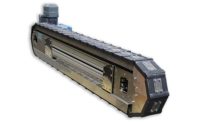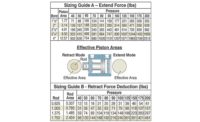With a workforce numbering 320 spread across the globe, INGUN produces test probes and customized and non-customized test fixtures for use in testing equipment in the electronics industry, where they are needed to test the various functions of electronic printed circuit boards. The core elements of the products developed by INGUN are spring-loaded test probes which contact the PCB and receive information through electrical pulses. Based in Konstanz, Germany, the company manufactures test fixtures for all commonly used testing systems – ranging from manual, pneumatic and vacuum-operated test fixtures to special adaptations.
As the industry that is spearheading the digitization of industrial production, the electronics sector has to drive innovations ahead quickly and consistently. In sectors such as automobile production or communications technology, customers’ testing requirements are becoming more demanding as time goes on. INGUN responded to this challenge in two ways: by continuing to develop its test systems, and by introducing new, innovative products on a rolling basis. “The electronics industry is highly dynamic – that means a continuous increase in the variety of test probes. Just a few years back, the phase from approval of drawings to delivery of finished products took about three months. Now, that time has been slashed to around six weeks. To continue accommodating our customers’ needs, we have to be flexible and fast, and we must ensure utmost quality and precision in our production, “ explained Thomas Schrodi, Head of Automation and Product Development at INGUN. Product life cycles are becoming ever shorter – and to add to the challenges, the trend towards miniaturization is becoming more marked. As electronic equipment becomes smaller, the requirements for precise measurements are increasing, he added.
Quality is also the focus of attention for Klaus König, who has worked on developing equipment and automating the plant at INGUN for the last eight years. He points out that piezoelectric sensors and systems from Kistler play a key part in ensuring precise and reproducible testing of electronic components.
With product life cycles becoming shorter all the time, production time frames have become much tighter.
“Customers demand far shorter times-to-market now. So it’s no longer possible to wait up to nine months for a new production plant. This is why, four years ago, we began manufacturing the plant we need to produce the test probes here in-house,” said Schrodi. By taking this step, INGUN has gained enormous flexibility: now that mechanical engineering has been integrated into the company as a core competence – which also means that production know-how is located in-house – new production plants can be set up far more quickly, and with greater attention to individual details. Given the vast range of diverse products that INGUN offers its customers, this new-won flexibility in the production process is an especially important asset for the firm.
INGUN currently has 14 automated plants that produce its test probes. A new plant is added every year. “The growth of our plant inventory shows that market demand for our products is constantly on the increase,” said Schrodi. Production on these plants takes place in multiple stages and, in the last step of each process, the test probe itself is tested with Kistler sensors. The plants are equipped with type 9217A or 9340A1 force sensors and each of them is fitted with a Kistler maXYmos monitoring system. Thanks to force-displacement monitoring, the functionality of each and every test probe is verified at the end of production. By integrating quality control into the automated manufacturing process bad parts are directly excluded from production.
Likewise, maXYmos BL and the type 9340A1 sensor are deployed in the manual production process for small series assembly. This ensures that 100% quality can also be guaranteed in the firm’s manual production. “That gives us the advantage of implementing one and the same quality testing process in our manual and auto- mated production operations. With maXYmos BL, we’ve found a system that is easy to program thanks to its intuitive user interface, and it tells us at a glance whether good or bad parts are being produced,” said König.
Forty million spring-loaded test probes are manufactured each year on the production plants at INGUN’s facility in Konstanz. Depending on the shift pattern, this means that each machine produces between three and eight million probes. To reliably achieve such high production volumes, all the machines have to run at extremely high speeds with precise synchronization. High capacity utilization of the plants plays a key part in the commercial success of the entire enterprise.
So that frequencies can be increased even further, INGUN’s development department is considering complete integration of quality assurance within the value creation process as a longer-term objective. Again, piezoelectric sensors from Kistler offer the crucial basis for this development: these instruments are tiny, and the force is applied to an extremely small area. Even in very confined spaces, the sensors deliver high-precision measurements with excellent repeatability and high resolution. The sensors are rugged and protected against overloading even in case of high frequencies – so they offer longer lifetimes than other sensors.
Kistler
(248) 668-6900




